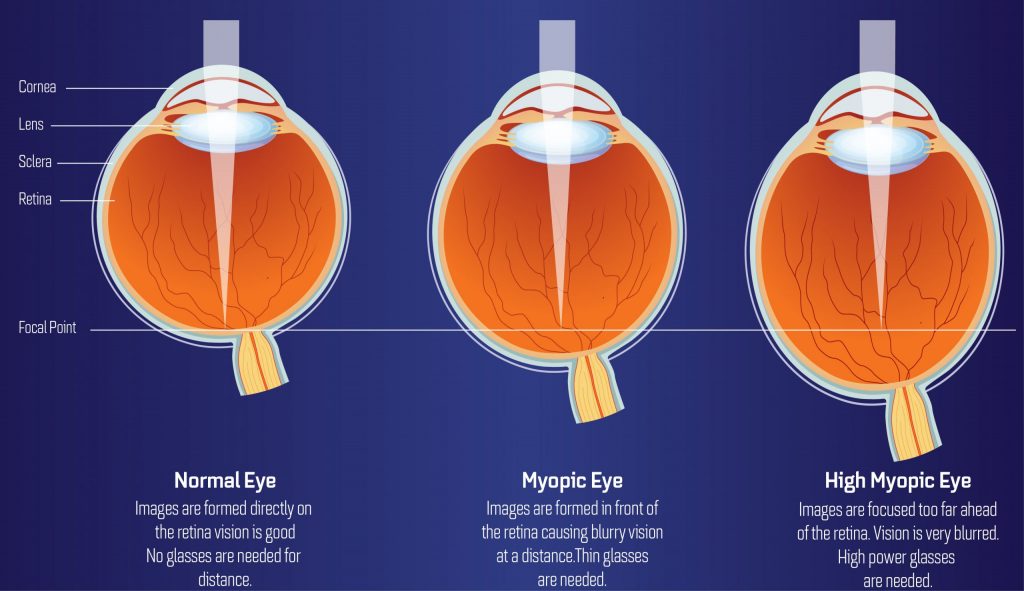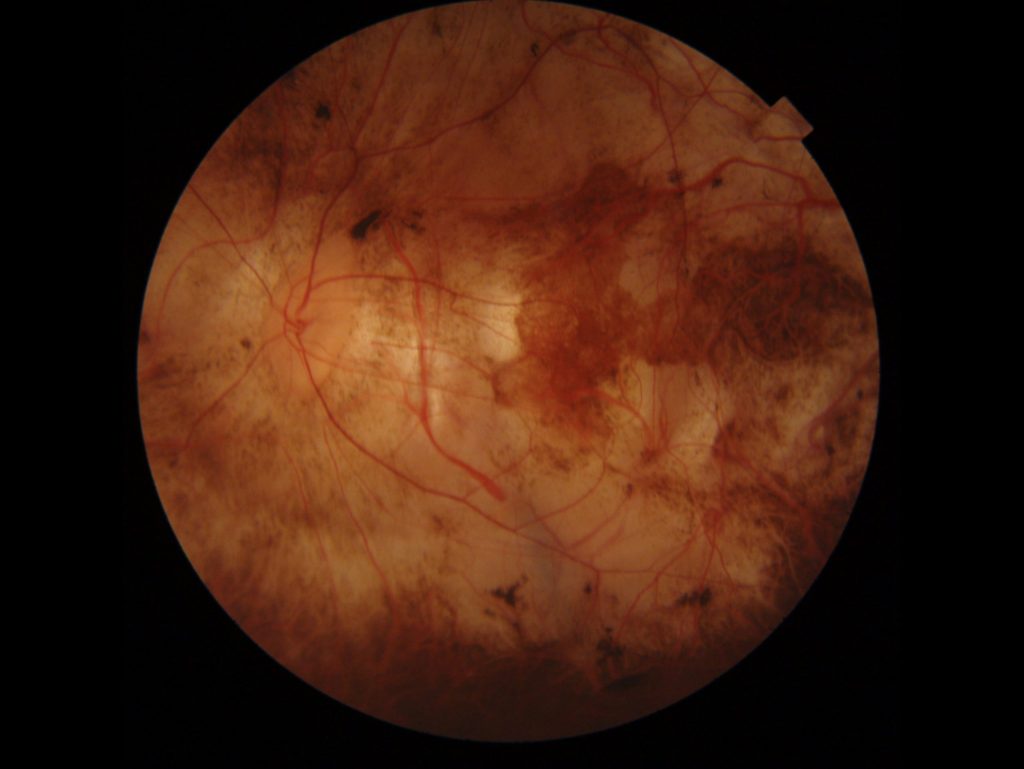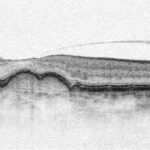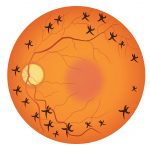High Myopia (short-sightedness)
What is myopia?
Myopia or short-sightedness is an eye condition that causes distant objects to appear blurry while near objects can be seen clearly. This occurs if the eye is longer than normal or has a cornea that is too steep. Due to this, light rays focus in front of the retina instead of on the retina, causing blurred vision.
What are the symptoms?
-Blurry vision when looking at distant objects
-Headaches caused by eye strains
-Difficulty seeing while driving especially at night
What causes Myopia?
-Risk factors for the development of myopia include:
-Intense near work
-Lack of sunlight exposure
-Genetics
How can it be diagnosed?
It is diagnosed by a basic eye exam which involves refraction with dilating drops (to block accommodation).
Is myopia a disease?
Myopia is not a disease. It is a refractive error which means it is an optical condition that prevents the eye from bending the light properly.
Are there grades of myopia?
Yes.
Low Myopia: From 0 to -3D
Moderate Myopia: From -3D to -6D
High Myopia: more than -6 diopters of refractive error.
What is progressive myopia?
Progressive myopia is shortsightedness that continues to worsen year after year. In most people myopia stabilizes by late teens. If the prescription continues to increase after teen years or increases rapidly in the early teens, serious eye complications may occur.
Can myopia be cured?
There is no specific cure for it but corrective glasses or contact lenses work quite well in the majority of the patients. Once myopia is stabilized, usually around the age of 18-20 years, LASIK procedure may be done. For very high myopia, Implantable Collamer Lens (ICL) implant surgery is an option.
Is myopia reversible?
Established myopia is not reversible. With age, the length of the eyeball, and hence the minus eye number is likely to increase.
Should one wear glasses all the time for myopia?
Depends on the grade of myopia. One may require glasses for certain activities like watching TV or driving. If someone is significantly nearsighted he/she may require glasses all the time.
Do mobile and computer screens cause myopia?
Intense near work of any type is associated with myopia (reading for long hours, Hifz, screen time, etc). More importantly, prolonged screen use can cause eye strain. Therefore, it is recommended to take breaks every 20 minutes to look at far objects 20 feet away for 20seconds (20:20:20 rule).
How can one prevent myopia?
Sunlight exposure is essential to prevent abnormal elongation of the eye. Therefore, parents must encourage outdoor activities at home and at school for growing children.
What are the complications of high myopia?
–Retinal Tears and Retinal Detachment
-Myopic macular degeneration
-Early cataracts
-Glaucoma
Can myopia cause blindness?
In rare situations, if the retinal detachment is not treated in a timely fashion, blindness may result.





